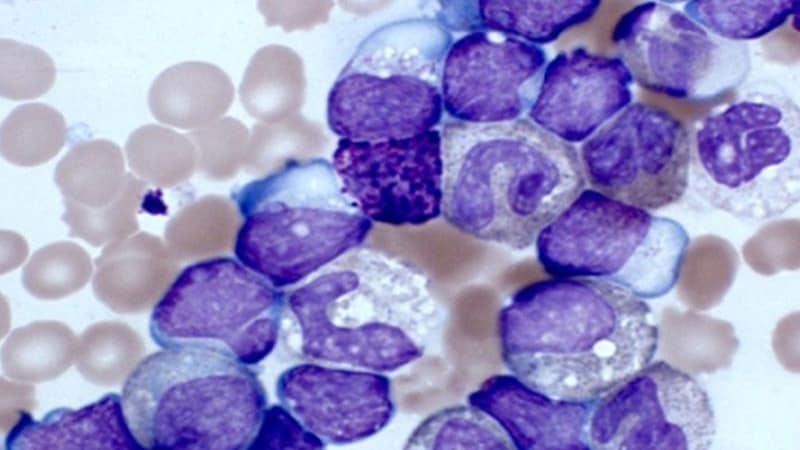Nilotinib Increases Risk of Metabolic Syndrome and CVD in CML Patients
Core Concepts
Nilotinib in CML patients increases the risk of metabolic syndrome and cardiovascular diseases.
Abstract
TOPLINE:
- Patients on nilotinib have a higher risk of diabetes, hyperlipidemia, and cardiovascular disease compared to other tyrosine kinase inhibitors for CML.
METHODOLOGY:
- Tyrosine kinase inhibitors pose risks for metabolic syndrome and CVD in CML patients.
- Unclear which TKI - imatinib, nilotinib, or dasatinib - carries the highest risk.
- Taiwanese study reviewed databases of 1538 CML patients on TKIs for new-onset metabolic syndrome and CVD.
TAKEAWAY:
- Nilotinib patients had higher incidence rates of diabetes and hyperlipidemia compared to imatinib and dasatinib.
- Nilotinib was a significant risk factor for post-TKI diabetes and hyperlipidemia.
- Nilotinib patients more likely to develop CVD than imatinib patients.
IN PRACTICE:
- Study highlights the association between nilotinib, metabolic syndrome, and CVD.
- Suggests avoiding nilotinib in CML patients with poorly controlled diabetes and hyperlipidemia.
SOURCE:
- Study led by Cih-En Huang published in The Oncologist.
LIMITATIONS:
- Retrospective study with a small number of cases may affect results.
DISCLOSURES:
- Supported by Chang Gung Medical Foundation, Taiwan. No conflicts of interest.
Customize Summary
Rewrite with AI
Generate Citations
Translate Source
To Another Language
Generate MindMap
from source content
Visit Source
www.medscape.com
Nilotinib Linked to Metabolic Syndrome and CVD in CML
Stats
"The risk for diabetes, hyperlipidemia, and cardiovascular disease is higher in patients receiving nilotinib (Tasigna) vs other tyrosine kinase inhibitors for chronic myeloid leukemia (CML)."
"The incidence rate ratios (IRR) of post-TKI diabetes were highest among patients treated with nilotinib vs imatinib and dasatinib (IRR, 3.15 for nilotinib vs imatinib; IRR, 4.97 nilotinib vs dasatinib)."
Quotes
"The present study represents the first report demonstrating a significant association between nilotinib, metabolic syndrome, and CVDs."
"To reduce the risk of CVD, it may be important to avoid nilotinib in patients with CML who have poorly controlled diabetes and hyperlipidemia."
Key Insights Distilled From
by M. Alexander... at www.medscape.com 08-29-2023
https://www.medscape.com/viewarticle/995933
Deeper Inquiries
What are the implications of these findings for the treatment of CML patients?
The findings suggest that there is a higher risk of developing metabolic syndrome and cardiovascular diseases in CML patients receiving nilotinib compared to other tyrosine kinase inhibitors. Healthcare providers treating CML patients need to be aware of these risks when considering treatment options. It may be crucial to avoid prescribing nilotinib to patients with poorly controlled diabetes and hyperlipidemia to reduce the risk of cardiovascular events. Regular monitoring of lipid profiles during TKI therapy is also recommended to detect any early signs of metabolic syndrome or cardiovascular issues.
Is there a potential alternative to nilotinib for CML patients with metabolic syndrome?
For CML patients with metabolic syndrome who are at a higher risk of developing cardiovascular diseases, considering alternative tyrosine kinase inhibitors may be beneficial. Imatinib and dasatinib are two other options that may have a lower risk of metabolic syndrome and cardiovascular complications compared to nilotinib. Healthcare providers should evaluate the individual patient's risk factors and medical history to determine the most suitable TKI for their treatment. Switching to a different TKI may help reduce the risk of metabolic syndrome and cardiovascular events in CML patients with pre-existing conditions.
How can healthcare providers better monitor and manage the risks associated with TKIs in CML patients?
Healthcare providers can improve monitoring and management of the risks associated with TKIs in CML patients by implementing regular screenings and assessments. It is essential to conduct baseline evaluations of diabetes, hyperlipidemia, and hypertension before initiating TKI therapy. Throughout treatment, healthcare providers should monitor lipid profiles, glucose levels, and blood pressure regularly to detect any changes or early signs of metabolic syndrome or cardiovascular issues. Patient education on lifestyle modifications, such as diet and exercise, can also help mitigate the risks associated with TKIs. Collaborating with a multidisciplinary team, including endocrinologists and cardiologists, can provide comprehensive care for CML patients at risk of developing metabolic syndrome and cardiovascular diseases.
0
